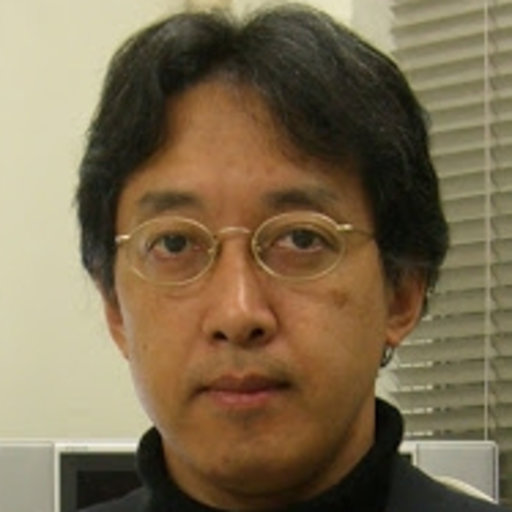Augmented Humans 2024 Workshop:
Developing Strategies for Co-designing Assistive Augmentation Technologies
Location
Monash University Caulfield Campus (Building H Room H9.14)
Important Dates23rd March 2024 (Saturday) Submissions Deadline
30th March 2024 (Saturday) Notification to Authors
6th April 2024 (Saturday) Workshop
Workshop
Details
Assistive augmentation promotes the independence of individuals with impairments by enhancing human capabilities that help overcome specific barriers or challenges. To understand these challenges and other requirements of the user, co-design – a method often used in the design of assistive technologies – could be adopted. Through engaging end-users in the design and development process, augmentation technologies could be designed to cater to the changing needs of users, including requirements for the modality of enhancement and technology integration. However, considerations specific to the co-design of assistive augmentations, such as the involvement of stakeholders beyond individuals with impairments, have yet to be explored. Through hosting this workshop, we aim to gather insights from designers and researchers to synthesise new strategies for co-designing assistive augmentation technologies.
This full-day workshop will be held in-person at the Augmented Humans 2024 conference in Melbourne, Australia on 6th April 2024. During the workshop, we will invite participants to do a short presentation of their submitted work. More details of the presentations can be found here. The rest of the workshop will focus on sharing insights, brainstorming and discussing new ideas for strategies for co-designing assistive augmentation technologies.
Call for Participation
We welcome a variety of submissions, including, but not limited to, position papers, research statements, case studies, empirical studies, interactive prototypes/demonstrations. These should be relevant to at least one of the topics of interest listed below:
• Assistive augmentation or human augmentation with health-related applications
• Assistive or adaptive technologies
• Universal or accessibility design
• Co-designing with multiple stakeholders
Submissions should be emailed to aton6105@uni.sydney.edu.au, with “Workshop Submission” as the email title. Papers should follow the ACM single column format, and not exceed 8 pages, including references (use \documentclass[manuscript, review]{acmart} for LaTeX; not anonymised). Submissions will be reviewed and judged based on their relevance to the topics of interest listed above. Participants (at least one author of each submission) must register and attend the in-person workshop.
Schedule
09:00 – 09:15
09:15 – 10:30
10:30 – 11:00
11:00 – 12:30
12:30 – 14:00
14:00 – 15:30
15:30 – 16:00
16:00 – 17:00
17:00 – 17:15
Introduction
Activity 1: Lightning presentations
Coffee break
Activity 2: Focus group discussion
Lunch
Activity 3: Brainstorming ideas
Coffee break
Activity 3: Discussion of brainstormed ideas
Closing
Organisers
Adele Tong

Adele Tong is a PhD student at the School of Computer Science at the University of Sydney. She is interested in exploring the application and adaptation of ubiquitous technologies for people with different needs, especially in the health domain.
Zhanna Sarsenbayeva

Zhanna Sarsenbayeva is a Lecturer in the School of Computer Science at the University of Sydney. Her research interests include Accessibility, Ubiquitous Computing, Affective Computing, and Human-Computer Interaction. She has co-organised several workshops at leading HCI venues including CHI and Ubicomp.
Jorge Goncalves

Jorge Goncalves is an Associate Professor in the School of Computing and Information Systems at the University of Melbourne. He has conducted extensive research on Human Computation, Ubiquitous Computing and Assistive Technologies. He has also served as Workshops Co-Chair for CHI’19 and CHI’20, and co-organised many successful workshops at leading HCI venues such as CHI, CSCW and Ubicomp (e.g., [1, 2, 3]).
Hideki Koike

Hideki Koike is a professor in the School of Computing at the Tokyo Institute of Technology. He has been working on vision-based Human-Computer Interaction. Recently he is interested in VR/AR systems for skill acquisitions.
Masahiko Inami

Masahiko Inami is a professor at the Research Center for Advanced Science and Technology, University of Tokyo. His research interest is in human augmentation technologies, Entertainment Computing, HCI and robotics.
Alistair McEwan

Alistair McEwan is the Ainsworth Chair of Technology and Innovation at Cerebral Palsy Alliance and University of Sydney, Faculty of Engineering and Information Technologies. He is the Theme Leader for Biomedical Devices and Instrumentation and helps lead the Australian Research Council Training Centre for Innovative Bioengineering. He was appointed as CPA’s first Chair of Technology and Innovation in 2017 to harness advancing technology and innovation to accelerate the search for new and improved treatments and interventions for childhood disabilities.
Anusha Withana

Anusha Withana is an ARD DECRA fellow and a senior lecturer (Asst. Prof.) at the School of Computer Science, the University of Sydney. He works in the research field of human-computer interaction (HCI), mainly focusing creating personalized enabling technologies. He is experienced in hosting workshops relating to the fabrication of new technologies.
Accepted
Papers
Coming soon.
Presentation
Details
For our first activity, lightning presentations, we will invite participants to present key concepts/insights of their work. These are fast-paced presentations aimed to help stimulate discussions and to encourage sharing of experiences. Each talk should last 3-5 minutes. We recommend presenters give a brief introduction of themselves at the beginning of their presentations. We would also like to ask presenters to be conscious of time and not exceed the 5-minute limit.